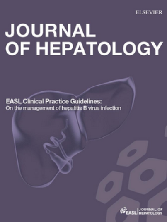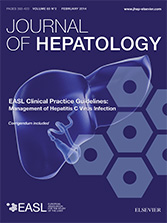Important information
General Information
Are you a general practitioner ?
- Feel free to address to a specialist in hepatology.
- Phone: +41 (0)31 632 59 78
- Fax: +41 (0)31 632 59 89
- Email: hepatologie@insel.ch
Are you a patient ?
- Donnot hesitate to ask your physician for assignment to a specialist in hepatology.
- And have him indicate "Hepatology" on this referral.
Clinical collaborations
-
The Center for Hepatic Diseases in Lugano and its associated Ambulatory care center - the Clinica Luganese Moncucco.
- The Hepatitis unit of the Pourtalès Hospital - (Hôpital Neuchâtelois - Pourtalès), headed by Prof. R. Malinverni.
In any cases of emergency, feel free to contact an on-call physician
by phone for example at the Insel Spital+ 41 (0)79 694 15 00
Within the field of hepatology a huge range of rare liver diseases has to be dealt with
Patients with rare liver diseases often face a long history of endured pain before a proper and accurate diagnosis is made and the real reasons for their diseases are identified. Such patients need a multidisciplinary management of physicians who are familiar and well trained with such rare liver diseases. With a catchment area of several million, we take care of patients with diseases like the Wilson’s disease, genetic cholestatic diseases (PFIC, BRIC), adenomatose, polycystic liver diseases, congenital hepatic fibrosis, vascular liver disease (e.g. Osler`s disease), porphyria, glycogenosis, cystic fibrosis and others. As experts in liver diseases we accept your inquiries and medical assignments which you might please address directly to hepatologie@insel.ch.
Additional information
Patients and viral hepatitides
Hepatitis C - B - D - A
There are new drugs available for patients with chronic hepatitis C. During our consultations we discuss options for individual treatment as well as various drug combinations with our patients. As certain medication still is limited in Switzerland we always contact the health insurance beforehand and clarify all costs related ahead of starting any therapy. We have a lot of experience in this process and were able to cure already several hundred patients with chronic hepatitis C.
There are also therapies available for patients with chronic hepatitis B. On the one hand, there is the possibility to support the immune system with Interferon, on the other hand, the virus can be directly inhibited by nucleotide analogues. In this case as well, we can clarify the indication for a therapy together with the patient and actively monitor him during his therapy with regard to his healing process.
For patients with chronic hepatitis D there is currently only one possible therapy, namely the administration of pegylated Interferon. According to the protocols, new substances will soon be available to treat this difficult hepatitis.
Last but not least, it must not be forgotten that patients not immune to hepatitis A and hepatitis B must be vaccinated.
Patients and liver cancer
Special consultation for patients with liver cancer
We have once per week a special consultation for patients with liver cancer. This consultation allows for a multidisciplinary approach, offering patients a second opinion and giving them access to the latest advanced therapies.
- Prof. Dr. Annalisa Berzigotti, clinic director
- Andrea Ruth Cavelti, HCC coordinator
Cohort study
All patients with liver cancer are invited to participate in a cohort study. As part of this project, clinical and epidemiological data are collected anonymously and prospectively. This cohort, which started in 2010, includes several hundred patients and has been the subject of multiple research projects.
References:
EASL Clinical Practice Guidelines - Management of hepatocellular carcinoma
2018

Download (english version)
References:
EASL Clinical Practice Guidelines - Management of Hepatitis B
Revised version 2017

Download (english version)
References:
EASL Clinical Practice Guidelines - Management of Chronic Hepatitis C
2014

Download (english version)
Referencesn:
EASL-EORTC Clinical Practice Guidelines - Management of HCC
2012

Download (english version)



